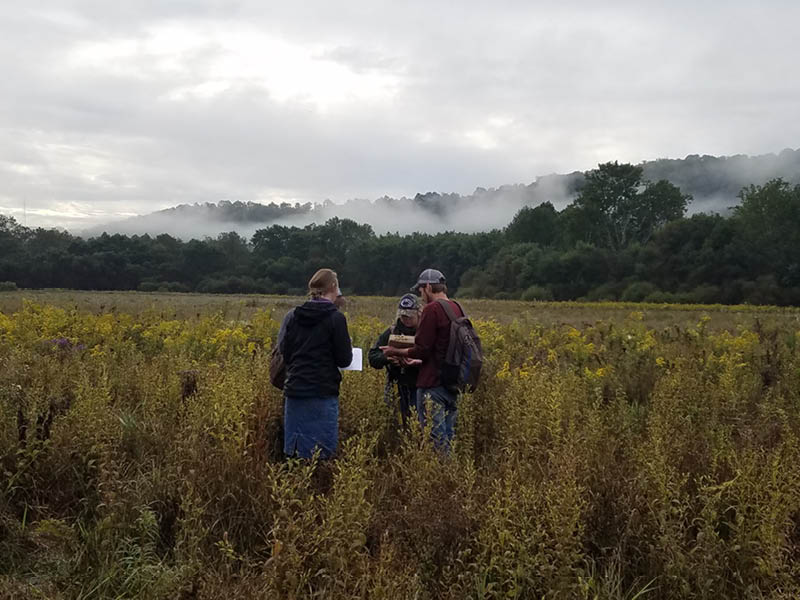
The Rise of Wetland Science as a Career
As global environmental concerns continue to escalate, the field of wetland science has become increasingly significant. The year 2024 projects a fascinating era for wetland scientists, where their expertise is not only sought after but also crucial for the health of our planet. These scientists are on the front lines of conservation, research, and policy-making, dealing with issues from climate change mitigation to habitat protection and biodiversity conservation.
The Demand for Wetland Scientists in 2024
The job outlook for wetland scientists in 2024 remains robust and growing. With a heightened global focus on environmental sustainability and wetland conservation, wetland scientists are in high demand. Their skills are crucial for:
- Assessing Wetland Health: Evaluating the conditions of wetlands, identifying stress factors, and implementing conservation strategies.
- Regulatory Compliance: Ensuring that construction, development, and land use comply with environmental laws and regulations, particularly those that protect wetland areas.
- Climate Change Mitigation: Understanding the role of wetlands in carbon sequestration and their impact on global climate patterns.
- Restoration Projects: Working on the restoration of degraded wetland areas to their natural state, a vital component in preserving biodiversity and maintaining ecosystem services.
- Research and Education: Conducting research on wetland ecosystems and disseminating knowledge to stakeholders, policymakers, and the public.
Education and Skill Development
The path to becoming a wetland scientist often begins with a degree in environmental science, ecology, biology, or a related field. As the discipline grows, so does the complexity of the skill set required. In 2024, successful wetland scientists will likely need:
- Advanced degrees for higher-level positions.
- Strong background in GIS (Geographic Information Systems) and remote sensing technology.
- Proficiency in data analysis and modeling software.
- In-depth understanding of local, national, and international environmental laws.
- Soft skills such as project management, communication, and stakeholder engagement.
Specialization in wetland science through certifications like the Professional Wetland Scientist (PWS) certification by the Society of Wetland Scientists can also enhance job prospects.
Industry Trends Influencing Job Prospects
Several trends are shaping the job market for wetland scientists in 2024:
- Green Infrastructure Projects: The push for sustainable development includes the creation of urban wetlands for stormwater management, requiring wetland scientists for design and monitoring.
- Policy and Advocacy: International treaties and national policies focusing on wetland preservation are expanding the role of wetland scientists in policy advisement and implementation.
- Private Sector Engagement: Increased corporate responsibility and sustainability goals mean more private companies are hiring wetland scientists for environmental impact assessments and sustainability planning.
Geographical Hotspots for Wetland Science Jobs
Certain regions will likely emerge as hotspots for wetland science careers:
- Coastal areas affected by sea-level rise and increased storm activity.
- Urban centers implementing green infrastructure initiatives.
- Countries with significant wetland biodiversity, such as Brazil, Indonesia, and the Congo Basin, where conservation efforts are critical.
Challenges and Opportunities
The road ahead for wetland scientists is not without its challenges:
- Funding Constraints: Economic downturns and shifting political landscapes can impact funding for environmental initiatives and research.
- Technological Advancements: Keeping up with rapid technological changes in data collection and analysis is necessary.
- Interdisciplinary Collaboration: Working with professionals from other fields, such as urban planners and engineers, is essential for comprehensive wetland management.
Conversely, these challenges bring opportunities:
- Innovative Solutions: There’s a growing need for innovative approaches to wetland conservation and restoration, which can lead to new job roles and specializations.
- Public Engagement: Increasing public awareness of wetland benefits can lead to more community-based wetland projects, expanding the roles of educators and citizen science coordinators.
- International Cooperation: As wetlands are a global concern, there are opportunities for work in international conservation and policy.
Conclusion: A Positive Outlook with a Note of Urgency
The job outlook for wetland scientists in 2024 is generally positive. The urgency to address environmental challenges ensures that wetland scientists will remain in demand. However, it’s a field that requires constant learning and adaptability to new research, technologies, and evolving environmental policies.
For those aspiring to enter the field or continue their wetland science careers, the time is ripe for action. As guardians of one of the world’s most precious resources, wetland scientists not only have the opportunity to pursue a career with significant growth prospects but also to make a tangible difference in the health of our planet.
